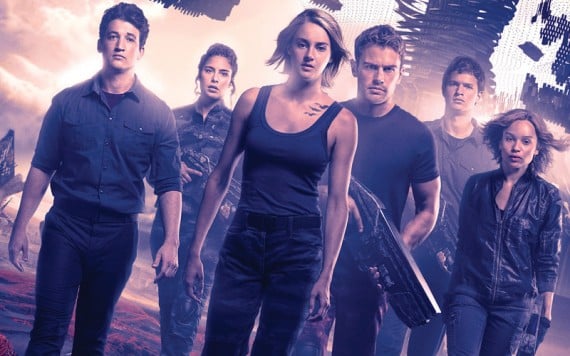‘The Divergent Series: Allegiant’ Review: A Mediocre Installment

It’s easy to be skeptical about Allegiant, the third film in the Divergent series, adapted from the young adult science-fiction novels by Veronica Roth. After all in the four years since the success of the first Hunger Games film put dystopian movies aimed at teens on the map, they’ve become something of a cinematic cliché, as has dividing the final book in the series into two films, as has again happened with Roth’s tome.
Even those in Allegiant’s target audience could be forgiven for feeling a little weary on our third visit to post-apocalyptic Chicago to drop in on the adventures of Tris (Shailene Woodley). In the first two films we saw her defy the city’s rigid ‘factions’ system of groups defined by their character traits to find herself as a ‘divergent’ – someone with a balanced personality and skills.
Director Robert Schwentke has broadened the scope and setting of the Divergent series with the penultimate movie. If the first two films were about Tris finding her role as someone who doesn’t fit in, Allegiant examines how humanity as a whole might struggle for an identity after the destruction of old certainties.
We begin where the final scene in the previous movie, Insurgent, left off – Chicago’s residents have received a message, unlocked by Tris, informing them that they are not the last outpost of human civilization, but are instead subjects within an experiment designed to provide hope for the future.
Any notion this knowledge would lead to the now faction-less people embracing their role as peaceable guinea pigs is quickly dispelled. Tris and love interest Four (Theo James) are disgusted and make moves to leave Chicago. Joined by a motley band of friends and allies of convenience, including Tris’s brother Caleb (Ansel Elgort), Peter (Miles Teller) and Christina (Zoe Kravitz) they soon discover a world of blood red toxic rivers and orange sands which looks a little like they’ve mistakenly marched on to the set of Mad Max: Fury Road.
The move into larger landscapes is accompanied by a focus on more profound themes. Those outside Chicago, despite possessing impressive technological facilities and interior design skills, may not be entirely benevolent towards the subjects of their experiment. This is epitomized by their leading administrator David’s (Jeff Daniels) creepy relationship with Tris.
The characters’ moral dilemmas are more plausible than in the first two films, which sometimes made them seem as if they’d ingested a particularly vacuous self-help book, while the action is tougher. In contrast to scenes in the gritty wasteland, the future’s technical wonders are depicted with the clean, captivating CGI visuals you’d expect from a big budget science-fiction blockbuster.
For a while it seems as if Schwentke has cast off the pall that has hung over the franchise – that it is little more than an attempt to cash in on the novels’ success rather than dystopian fiction with something important to say about the world. However Allegiant sags in its second half as loose ends have to be addressed and characters put in place before next year’s finale. The pacing goes awry as themes developed earlier are sped past in order to get through an increasingly scattergun plot. Woodley, whose likable screen presence held the previous films together, is also sidelined as the film progresses and it’s something of a relief once we reach a finale.
These failings mean Allegiant is unlikely to win over critics of the series. It hints at becoming something bigger, better and more intriguing – but we’ll have to wait for the final film for that to be delivered (hopefully).
The Divergent Series: Allegiant Trailer
https://www.youtube.com/watch?v=0G0C-vMHcQY


Responses